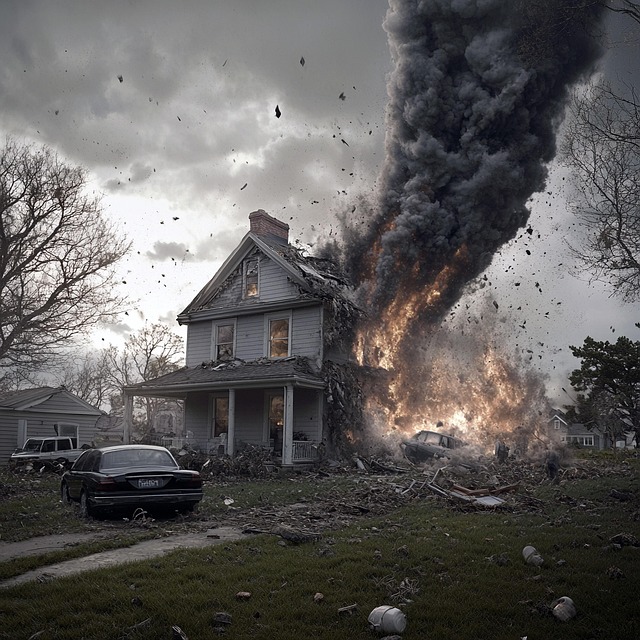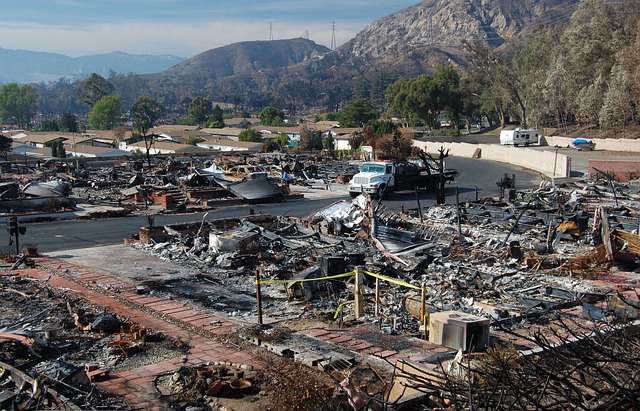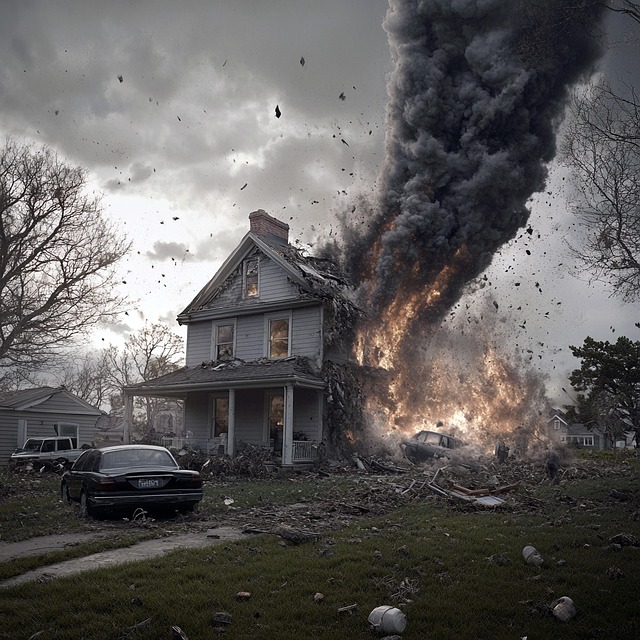Selling a house with fire damage in California involves adhering to specific procedures and local regulations. It requires comprehensive assessments by specialized professionals to determine repair needs, set realistic expectations, and accurately value the property. Legal considerations regarding structural versus non-structural damage must be addressed, with mandatory disclosure to potential buyers. Cost implications play a significant role in deciding between repairing or reconstructing, while strategic marketing through honest images, online platforms, and home staging can significantly enhance interest and sales potential in the competitive California market.
Selling a fire-damaged home in California involves navigating complex assessments, legalities, and marketing challenges. If you’re wondering, “Can you sell a house that has fire damage California?” this guide is your roadmap. From understanding the intricacies of fire damage assessments to exploring repair vs. reconstruction options and effective marketing strategies, we break down everything you need to know to successfully navigate the sale.
- Understanding Fire Damage Assessments in California Real Estate
- Legal Considerations for Selling a Fire-Damaged Property
- Repair vs. Reconstruction: Cost Implications and Home Insurance
- Marketing Strategies for Attracting Buyers Despite Fire Damage
Understanding Fire Damage Assessments in California Real Estate

Selling a house with fire damage in California involves navigating specific procedures and understanding local regulations. Real estate agents and potential buyers alike must consider comprehensive assessments to accurately determine the extent of repairs needed. These assessments play a crucial role in facilitating transparent transactions, ensuring that both parties are well-informed about the property’s current state.
In California, assessing fire damage goes beyond visual inspections. It often involves specialized professionals who meticulously evaluate structural integrity, identify hidden hazards, and estimate restoration costs. This comprehensive approach is designed to protect buyers and sellers by setting realistic expectations, which is particularly important when considering the financial implications of repairs. It also helps in accurately valuing the property in the real estate market, addressing common concerns about whether a house with fire damage can be sold in California.
Legal Considerations for Selling a Fire-Damaged Property

When it comes to selling a fire-damaged property in California, understanding the legal considerations is paramount. The first step involves assessing if the damage is structural or non-structural. Non-structural damage, such as smoke stains and scent removal, can often be addressed through remediation efforts. However, structural damage that compromises the integrity of the home requires careful navigation.
In California, real estate transactions are governed by a set of laws designed to protect both buyers and sellers. It’s crucial to disclose any known fire damage to potential purchasers. Failure to do so could lead to legal repercussions, including claims for misrepresentation. Consulting with a real estate attorney is highly recommended to ensure compliance with local regulations and to understand the best course of action in selling a fire-damaged property.
Repair vs. Reconstruction: Cost Implications and Home Insurance

When considering whether to repair or reconstruct after fire damage in California, cost implications play a significant role. Repairing minor fire damage can be more affordable, focusing on structural integrity and restoring affected areas like walls and ceilings. However, reconstruction is often required for severe cases, involving complete demolition and rebuilding. Home insurance policies vary, and reviewing your coverage carefully is essential. Some policies may cover all or most repair costs, while others might only provide a set amount or require you to cover certain expenses out of pocket. Understanding these aspects beforehand ensures you’re informed about the financial obligations associated with selling a fire-damaged house in California.
Decision-making should also consider market conditions and potential buyers’ preferences. In some cases, minor repairs can make a significant difference in a home’s appeal to buyers. However, if extensive reconstruction is needed, it might be more practical to tear down and rebuild, potentially increasing the property’s value. Consulting with real estate professionals and contractors experienced in California’s housing market can provide valuable insights into the most feasible and cost-effective path forward when selling a house that has fire damage.
Marketing Strategies for Attracting Buyers Despite Fire Damage

Despite the challenges posed by fire damage, selling a house in California is still feasible. The key lies in effective marketing strategies that highlight the property’s potential and convey its value accurately. Start by taking high-quality photos that show both the affected and undamaged areas, creating an honest representation of the home. Utilize online real estate platforms and social media to reach a broader audience, focusing on keywords like “can you sell a house that has fire damage California” to attract buyers aware of similar properties in the market.
Additionally, consider professional staging. While repairs are ongoing, staged spaces can make the house appear more appealing and livable. Focus on showcasing the home’s best features and arranging furniture in ways that emphasize space and light. A well-staged property can significantly boost interest, even in a competitive California real estate market.
Selling a fire-damaged house in California is indeed feasible, navigating through specific legal considerations and understanding cost implications. With thorough fire damage assessments, clear marketing strategies, and adequate insurance coverage, homeowners can effectively showcase the property’s potential and attract buyers. Remember, whether repairs or reconstruction are needed, being transparent about the extent of damage is key to a successful sale in California’s real estate market.






